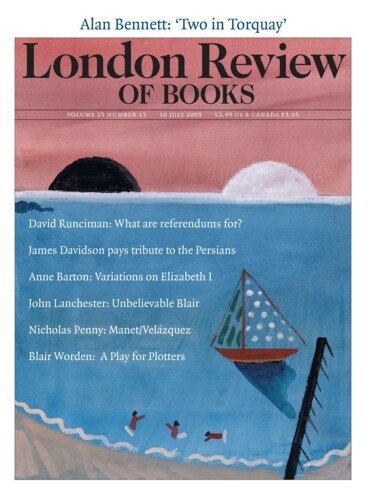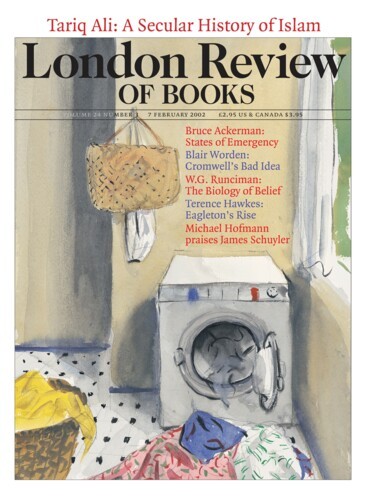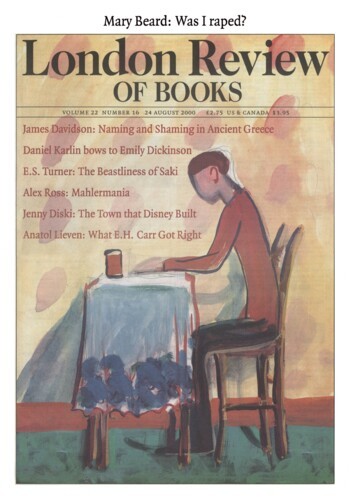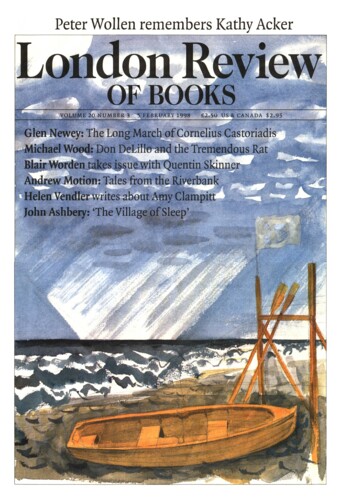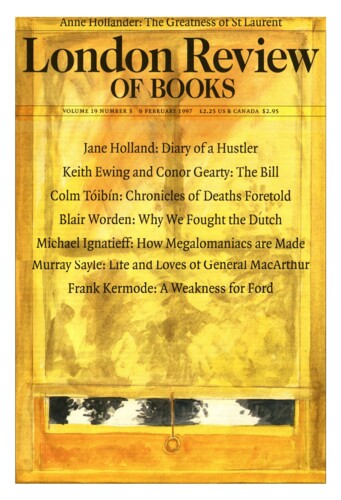Which play was performed at the Globe Theatre on 7 February 1601? A Play for Plotters
Blair Worden, 10 July 2003
In the spring or summer of 1599, the Chorus of Henry V, in Shakespeare’s only explicit reference to a contemporary politician, looked forward to the return of the 33-year-old Earl of Essex from his campaign in Ireland, ‘bringing rebellion broached on his sword’ – a light touch from which some heavy inferences have been drawn. Instead, the Earl returned in disgrace in...
